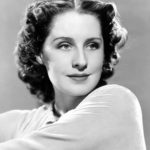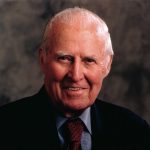Date of Birth: December 26, 1872
Zodiac Sign: Capricorn
Date of Death: October 7, 1967
Biography
Sir Ralph Norman Angell Lane, commonly known as Norman Angell, was a prominent British writer, lecturer, and politician. Born on December 26, 1872, Angell is best known for his influential work “The Great Illusion,” published in 1909, which argued that war was economically and socially irrational. He asserted that the economic interdependence among modern nations made military conquest unprofitable. Angell’s ideas were widely discussed, earning him the Nobel Peace Prize in 1933. Over his career, he authored several books and articles, engaged in political activism, and served as a Labour MP. Angell’s contributions to peace and economic theory remain significant, reflecting his deep commitment to rationalism and internationalism.
5 Interesting Facts about Norman Angell
1. Norman Angell was knighted in 1931 for his contributions to international peace.
2. He served as a Labour Member of Parliament for Bradford North from 1929 to 1931.
3. Angell was a staunch advocate for the League of Nations and later the United Nations.
4. Before becoming an influential writer, he worked as a journalist in the United States and Europe.
5. Angell’s book “The Great Illusion” was translated into multiple languages and had several editions, reflecting its global impact.
5 Most Interesting Quotes from Norman Angell
1. “War, even when victorious, is fraught with costs and losses for the victor.”
2. “Every nation sincerely desires peace; and all nations eagerly pursue courses which render peace impossible.”
3. “The Great Illusion of our time is the belief that the purposes of war can be achieved by war.”
4. “The economic interdependence of nations in trade and industry is the real guarantee of peace.”
5. “Peace is not merely a distant goal that we seek, but a means by which we arrive at that goal.”
Highest Net Worth Achieved
Norman Angell’s net worth was not a prominent aspect of his life and remains undocumented. His wealth was primarily intellectual and moral rather than monetary.
Children
Norman Angell did not have any children.
Relevant Links
1. [Nobel Prize Biography](https://www.nobelprize.org/prizes/peace/1933/angell/biographical/
2. [Wikipedia Page](https://en.wikipedia.org/wiki/Norman_Angell
3. [Britannica Entry](https://www.britannica.com/biography/Norman-Angell
4. [The Great Illusion on Project Gutenberg](https://www.gutenberg.org/ebooks/author/angell

